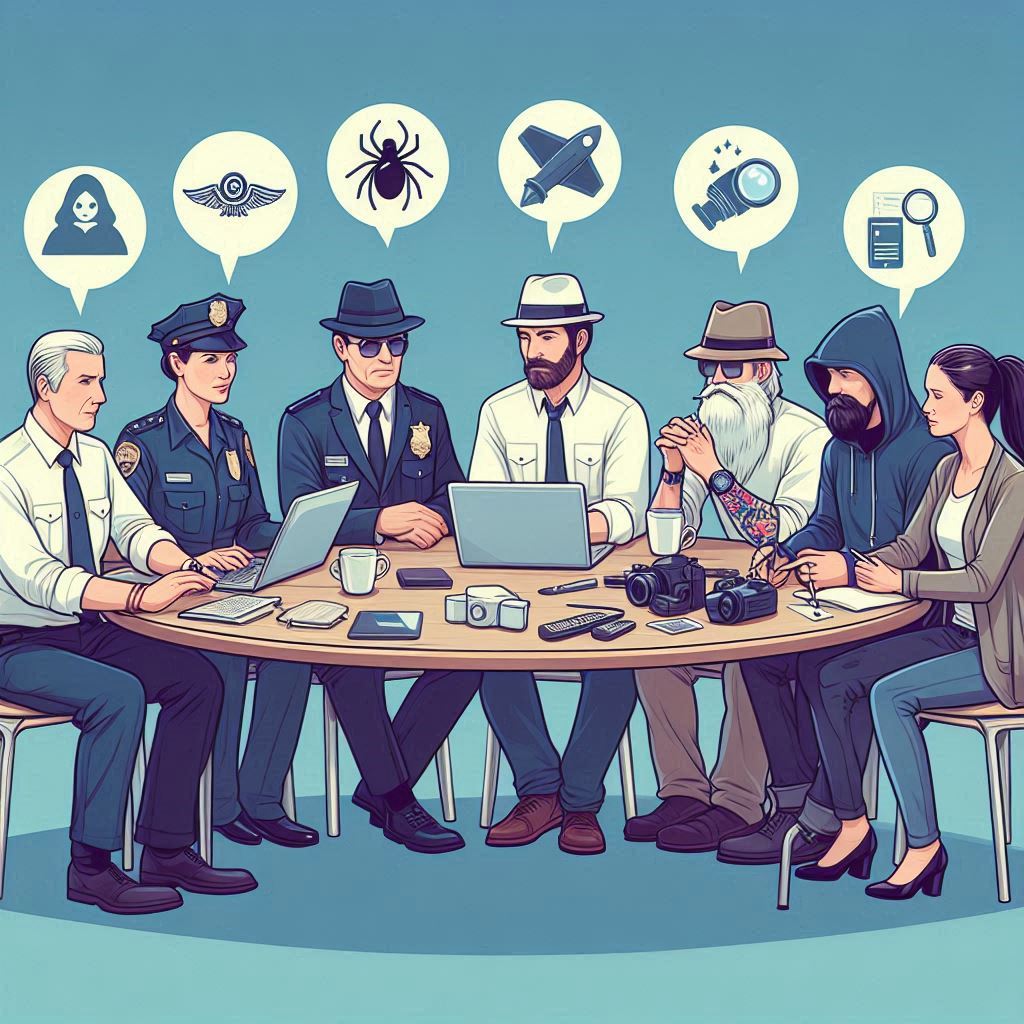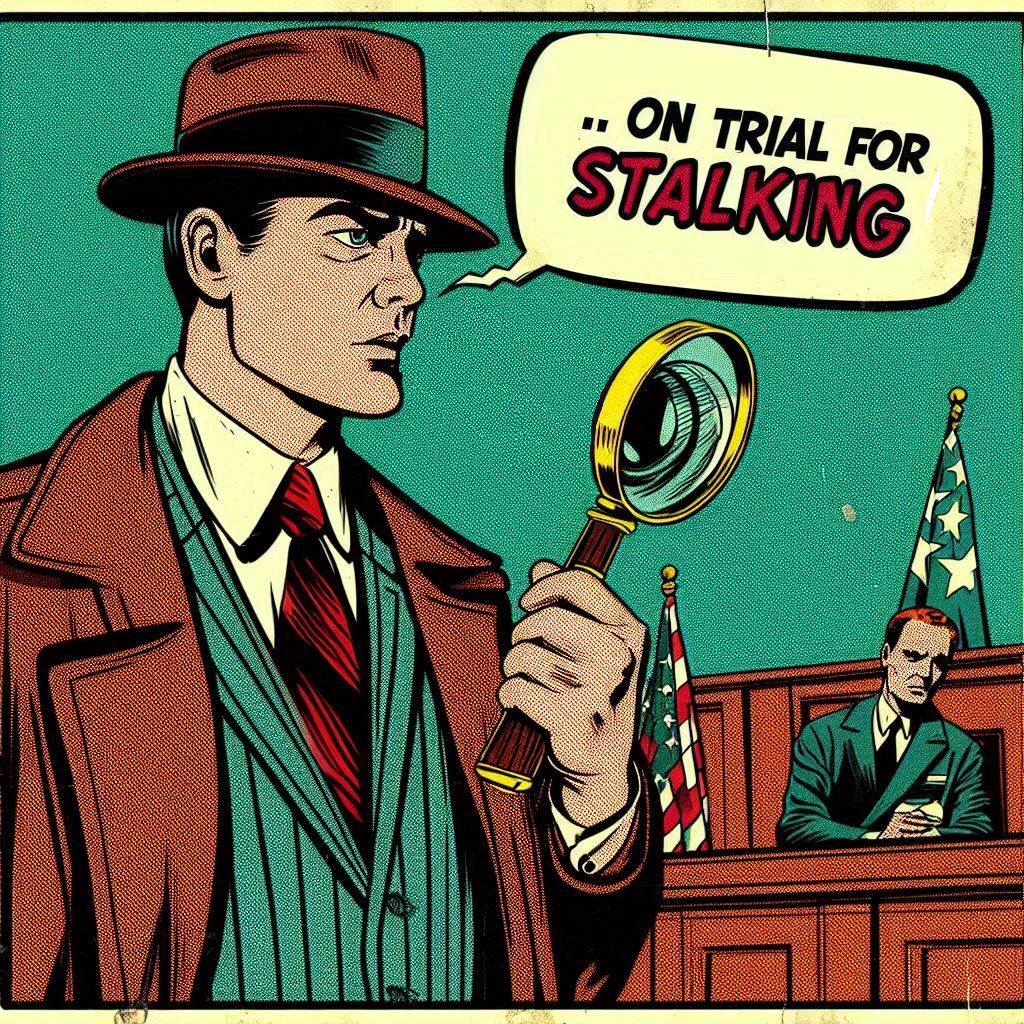How to Identify and Protect Yourself From Common Surveillance Tactics
The Role of Private Investigators in Divorce Cases
Divorce is a complicated and emotionally strong event that usually needs much proof to come to a just and fair agreement. Private detectives can be very important in this situation.
The Need for Evidence
In many divorce situations, worries might come up about the other person’s actions, money matters, or taking care of kids. To make a powerful case, we need to collect solid proof. This is where a private investigator can be invaluable.
Common Reasons to Hire a Private Investigator
Adultery: The proof of cheating can greatly affect the result in a divorce process, specifically for alimony, the custody of children, and splitting up possessions.
Hiding assets: Sometimes, during a divorce, people married might try to hide money or houses to get more in the end. A detective who works privately can find these secret accounts or homes.
Child Custody: To decide if a parent suitable, looking into their life, raising children skills, and any dangers to child’s happiness is important.
When a husband or wife disagreement about the other person’s earnings, a private investigator can check job, income amount, and possible concealed income sources.
If a partner from your life is missing and there’s no clear reason, hiring an expert can help find them.
The Investigative Process
The role of a private investigator in a divorce case typically involves:
Surveillance: Watching the person we want information on, to collect proof of cheating, addiction to drugs or alcohol, or other important behaviors.
Background check: Reviewing the individual’s history, which includes criminal records, money matters, and online presence.
Asset Tracing: Identifying hidden assets, such as bank accounts, real estate, or valuable possessions.
Child custody investigations: to figure out how well each parent can raise a child, we look at their way of living, any drug use, and how they talk and act around the kids.
Witness Interviews: Getting info from folks who saw or know about events or situations.
Legal and Ethical Considerations
Even though private detectives hold an important place in divorce law, we should make sure to carry on investigations legally and ethically. Investigators are required to follow laws and guidelines that safeguard the rights of everyone part.
Privacy Laws: Investigators must respect the privacy rights of individuals and avoid unlawful intrusion.
Evidence Admissibility: The evidence gathered must be relevant and admissible in court.
Professional Conduct: Investigators must maintain a high level of professionalism and integrity.
The Impact on the Divorce Process
The findings collected by a private detective can greatly affect the result of a divorce matter. This information may offer an advantage during discussions, fortify a legal stance, and assist in deciding who will care for children. But we must keep in mind that the judges’ final choice will come from all the proof offered.
Cost-Benefit Analysis
Hiring a private investigator is like spending money, and it’s important to think about the good things you might get from it compared to how much it costs. Think about how strong the proof needs to be, how complicated the case is, and what could happen with money in a divorce when deciding if it’s right for you.
In the complicated area of divorce, private detectives give very important help by supplying key proof that can decide the result of a case. If we understand the function of private detectives and the legal and moral issues involved, then people can make wise choices about whether to hire one. Divorce cases are important, and one must work with an expert divorce lawyer to make sure that the collected evidence is used well to get what is wanted.
The Role of Private Investigators in Divorce Cases
Divorce, which is a complicated and sometimes full of strong feelings, can be made even more challenging because of the requirement to collect evidence that helps one’s legal stance. Private detectives are very important in this situation because they give essential details that may greatly change the result of a court case.
The Need for Evidence
In many divorce cases, it can happen that one or more of the people involved have worries about the other person’s actions, riches, or taking care of kids. To put together a good case, you need to collect real proof. This is where a private investigator can be invaluable.
Common Reasons to Hire a Private Investigator
Adultery, which shows a spouse being unfaithful, can greatly affect the results of a divorce situation. This is particularly true for spousal support, kids’ care, and splitting up possessions. A private investigator can do watchful activities to collect proof of out-of-marriage relationships by taking pictures, filming scenes, and getting witness accounts.
Hiding assets: spouses may try to hide their money or property to have a financial win in divorce. A private investigator can find hidden bank accounts, homes, or other valuable things with asset searches, checking public records, and talking with banks and other money places.
Child Custody: Deciding if a parent suitable can sometimes includes looking at their living, how they raise children, and any possibility they might harm the child’s happiness. A private investigator can find proof of drug use, not taking care of children, or other bad actions that could influence who gets to take care of the child.
When a marriage has problems because one partner disagrees about the other’s money-making, a private detective can check job information, pay levels, and secret sources of cash by looking at public files, watching over them, and talking to bosses and work friends.
If a spouse isn’t available and doesn’t give a reason, a private person called ‘detective’ can find out where they are. This detective does it by looking at public information, checking websites like Facebook, and asking close people such as friends and family.
The Investigative Process
The role of a private investigator in a divorce case typically involves:
Surveillance means to watch the person’s actions with the aim to collect proof of cheating, using drugs, or other important behaviors. This may include tracking the person, doing stakeouts, and using spy devices.
Background Checks: Looking into the person’s past, including crimes, money records, and social media actions. This means checking public documents, searching online, and talking to possible witnesses.
Asset Tracing: Find hidden assets, like bank accounts, houses, or valuable items. This action includes looking at fiscal documents, public records, and having talks with banks and connections.
Child Custody Investigations: Examining the parenting skills of both parents, this involves looking at their lifestyle, if they use drugs, and how they interact with children. The process includes conducting interviews, watching how parents and children interact with each other, and collecting evidence that may show risks to the child’s well-being.
Witness Interviews: It means to collect information from people who might know about important events or situations. This includes finding potential witnesses, interviewing them, and writing down their words.
Legal and Ethical Considerations
While private investigators have an important part in divorce cases, it’s necessary to do investigations legally and right. Investigators should follow special rules and laws to make sure everyone’s rights are respected.
Privacy Laws: Investigators must respect the privacy rights of individuals and avoid unlawful intrusion.
Evidence Admissibility: The evidence gathered must be relevant and admissible in court.
Professional Conduct: Investigators must maintain a high level of professionalism and integrity.
The Impact on the Divorce Process
A private investigator’s collected proof can greatly affect the result of a divorce case. It gives power during legal discussion, supports an argument or stance, and assists in making decisions about who the children live with. But it’s really important to keep in mind that the final choice of the court will be determined by all the evidence that has been shown.
Cost-Benefit Analysis
Choosing a private detective is like buying something valuable, and it’s important to think about the possible good things compared to the money spent. Think about how strong the clues need to be, how complicated the problem is, and what it might cost in finances if somebody gets divorced before deciding.
Conclusion
In a world where people are getting divorce, private investigators give an important help by offering key evidence that can change the result of a court case. If we know about the job of private investigators and lawful and moral things that come with it, people can make smart decisions about if they should hire one. It is necessary to work closely with an experienced divorce attorney to make sure that the evidence collected is used effectively for the needed result.










